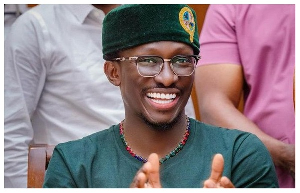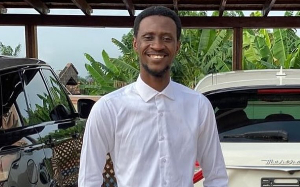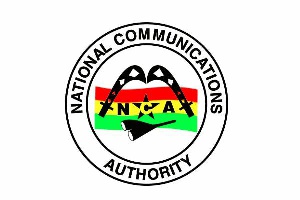The First Lady Lordina Mahama has urged African countries, businesses and civil society to work together to eradicate childhood diseases through immunisation for the children to become healthy adults to better the lot of the continent.
Mrs Mahama, who is also the President of Organisation of African First Ladies Against HIV and AIDS (OAFLA) , therefore, called for the protection of children with life-saving vaccines and the renewal of efforts to reach every child with routine immunisation towards improving child health outcomes.
“Vaccination could save children’s lives, and keep adults, communities and nations healthy as well as safeguard families from the cycle of poverty, by increasing their resilience to disease,” she said.
In a speech, read on behalf at the launch of the Sixth African Vaccination and Child Health Promotion Week, in Accra, Mrs Mahama said countries needed to prioritise immunisation as a preventable mechanism to childhood diseases.
The global theme for the 2016 African Vaccination Week is, “Close the Immunisation Gap; Stay Polio Free”, while the theme for the Child Health Promotion Week is “Good Life; Start Right”.
The theme for the events, which were launched together, highlighted the importance of a collaborative effort by all stakeholders, governments, partners, civil society, individuals, families and communities to ensure that children are born healthy and protected against unnecessary death from diseases that could be prevented.
With the launch, Ghana joins the rest of Africa to commemorate the 2016 African Vaccination Week (AVW) in celebration of interventions, which have helped in saving millions of lives of new-born babies and children below the age of five.
The annual event aims at strengthening immunisation programmes in the Africa Region by increasing public awareness on the importance of every person’s right to be protected from vaccine-preventable diseases.
The First Lady said all key stakeholders, including the Ghana Health Service (GHS), the Ministry of Health, UN agencies and development partners, should continue with the demonstration of their collective recognition of the need to advocate immunisation as a public health priority and achieve high immunisation targets.
The World Health Organisation (WHO) says one in five African children lacks access to all the necessary and basic vaccination.
Although 18 countries in Africa are already reaching 90 per cent or more children with the required three doses of DTP3, which protects against diphtheria, tetanus and pertussis, the majority are still struggling with low immunisation rates.
“Worldwide, 1.5 million children under five still lose their lives annually to diseases that could be prevented by vaccines; this is unacceptable,” Mrs Mahama said. “We need, collectively, to prioritise immunisation as a key intervention to reduce child mortality,”
The First Lady, therefore, urged her fellow First Ladies to lobby their governments, benevolent organisations, international non-governmental organisations, as well as corporate Africa, to prioritse child health, as partnership was paramount to the work of OAFLA.
“We must accelerate national and regional immunisation commitments to protect our children against vaccine-preventable diseases as these will enable them to live productive lives and contribute to the development of Africa,” Mrs Mahama said.
She said Ghana was the first African country to introduce the pneumococcal and rotavirus vaccines at the same time, thus simultaneously tackling the leading causes of the world’s two biggest childhood killers – pneumonia and diarrhoea.
She said Ghana was also on record to have eliminated maternal and neonatal tetanus (MNT) since 2011, while cases and deaths from pneumonia and diarrhoea in children had drastically reduced since the introduction of effective vaccines.
She expressed happiness that the last time Ghana had a case of polio was in 2008, adding that, the country was poised to make history with the rest of the world in the fight against polio.
Mrs Mahama announced that Ghana would celebrate the Week from May 5, with various country-specific series of programmes, including vaccination administration, health promotion, community events, and media activities.
The WHO member-states agreed with the Global Vaccine Action Plan (GVAP) to reach 90 per cent coverage of DTP3 by 2020 and at least 80 per cent vaccination coverage in every district or administrative units.
However, the WHO says an estimated 22 per cent of the world’s under-immunised infants are located in just four African countries namely, Democratic Republic of Congo, Ethiopia, Nigeria and South Africa.
In addition, five countries out of the six with a DTP3 coverage rate below 50 per cent are located in Africa.
Dr Ebenezer Appiah Denkyera, the Director General of the Ghana Health Service, commended the First Lady for her unflinching support to the health sector, particularly, that of the health of mothers and children.
He called for support in ensuring that Africa rid itself from such diseases that could easily be eradicated through free immunisation services.
Health News of Monday, 9 May 2016
Source: GNA

















